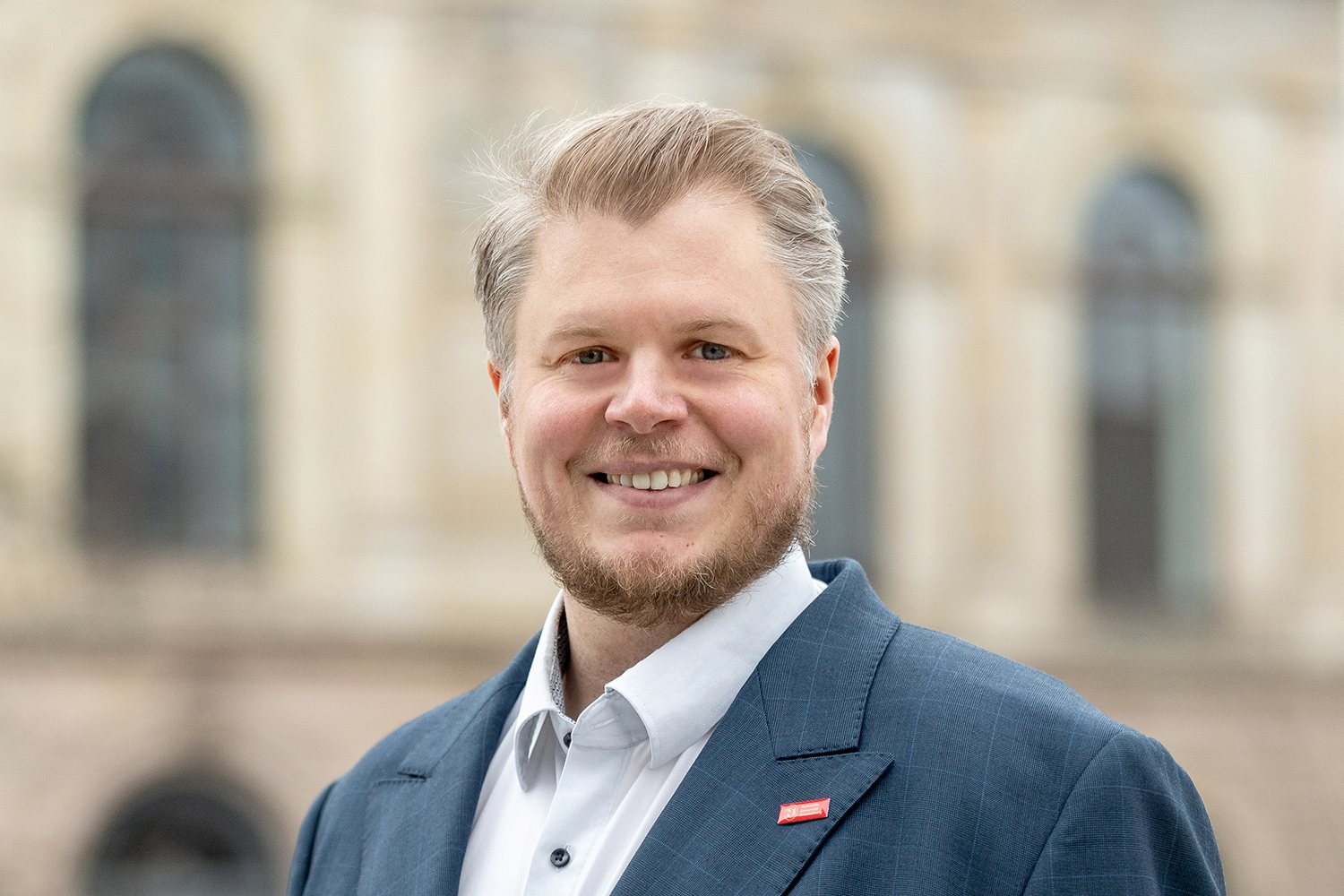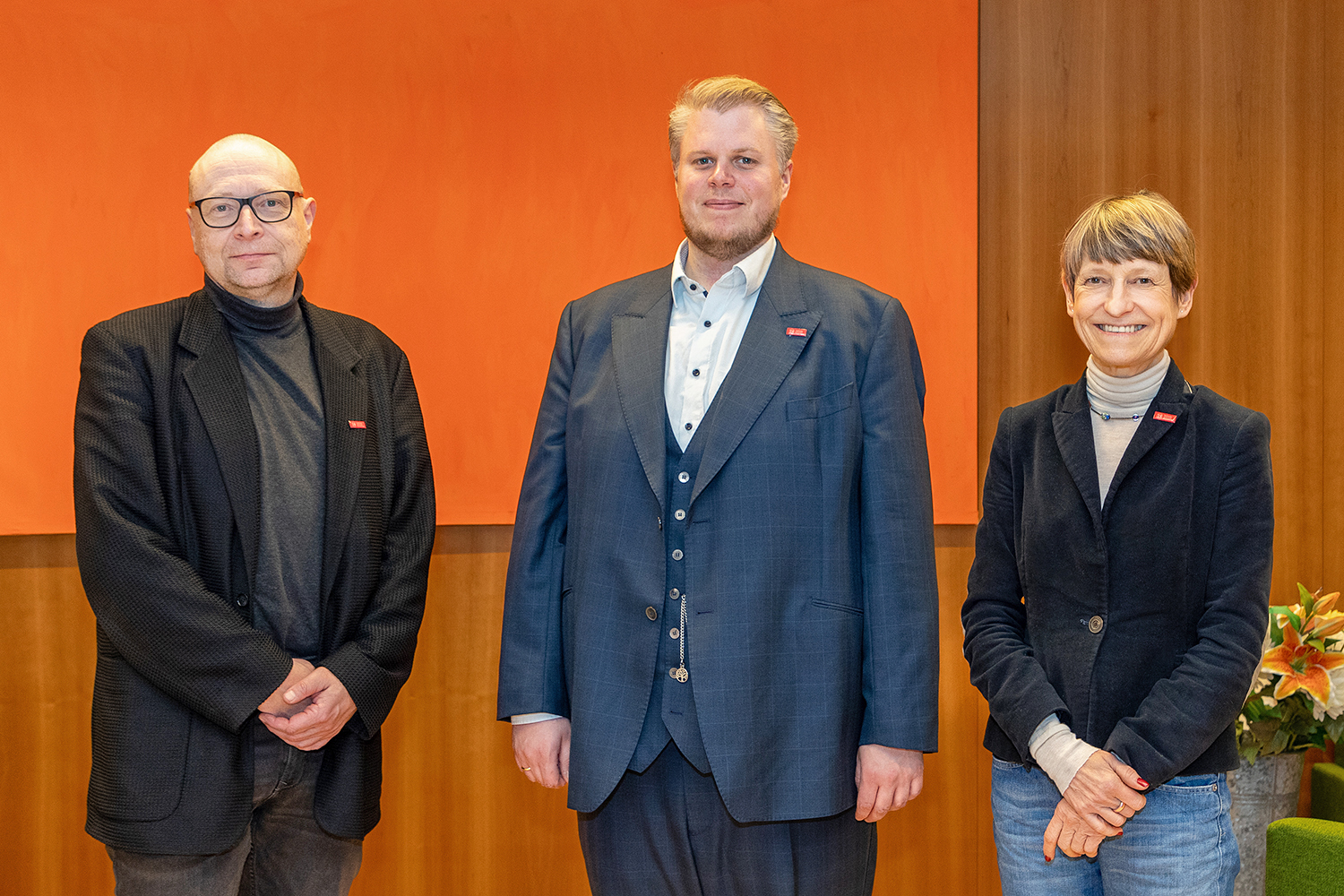Biology lessons of the future: Between Green School and social media Alexander Büssing is the new professor at the Institute for Didactics of Natural Sciences
Biology has always been his favourite subject. So it was only logical for Professor Alexander Büssing to study biology – with the aim of becoming a teacher. After holding various positions, he is now working in the field of biology education, investigating how to improve biological learning processes and what sustainable biology education should look like. Professor Büssing has been head of the Department of Biology Didactics at the Institute for Didactics of Natural Sciences since October. Here he answers our questionnaire.

Alexander Büssing is the new professor at the Institute of Didactics of Natural Sciences. Picture credits: Kristina Rottig/TU Braunschweig
Professor Büssing, why did you choose TU Braunschweig?
TU Braunschweig offers me excellent opportunities to realise my scientific ideas. With the Green School in the Botanical Garden, for example, we have our own teaching and learning laboratory right in the garden. Every year, more than 1,000 students can take part in exciting programmes on biological topics, and there are also opportunities for student teachers to get in touch with school practice at an early stage of their studies.
Last but not least, the learning centre offers innovative research opportunities for our department, as we can investigate topics such as closeness to nature or the promotion of environmental protection motivation as part of education for sustainable development. A win-win situation for everyone involved.
There is also a long tradition of using live animals at the site. Over the next few years, I would like to revive this in the classroom with simple organisms such as stick insects.
What exactly is the focus of your research? How would you explain your work to someone who is not familiar with the subject?
I am a biology educator and together with my team I want to find out how to improve biological learning processes. This can be school-based learning in biology classes, but also out-of-school learning in places like the Green School. I am also increasingly interested in new media: We are also confronted with biological issues such as climate change, vaccinations or biodiversity on a daily basis in social media. What skills are needed to distinguish real news from fake news? This also includes the question of what sustainable education should actually look like, without losing the technical perspective.

Appointment of Professor Alexander Büssing with our President Angela Ittel and Professor Eckart Voigts, Dean of the Faculty of Humanities and Education. Picture credits: Kristina Rottig/TU Braunschweig
What are the main research areas and projects you will be working on at TU Braunschweig?
My field of research is biology didactics and I am particularly interested in three areas: Digitalisation, sustainability and reflection on science. I am firmly convinced that future-proof biology teaching depends on the meaningful integration of digital media and must address issues of education for sustainable development to a greater extent. In order to achieve these goals, however, it is necessary to know the scope of our findings, i.e. to learn something about the nature of science.
Each of my projects addresses at least one of these issues. For example, as well as looking at the impact of social media on climate change, we are also investigating other digital media, such as the use of immersive virtual reality. Of course, not everything is digital, so in the area of education for sustainable development we are also investigating the learning effects of original objects such as plants and animals. An exemplary project in the area of science reflection is looking at teachers’ perceptions of biology didactics, as I believe this is a key to the lack of transfer between theory and practice.
What motivated you to do research in this area?
Although my own school days were not always successful in terms of grades, biology was my favourite subject and I also enjoyed interacting with people through my work in youth groups. So I decided to study biology, German and philosophy to become a teacher. During my studies we learnt a lot about how learning works, especially in the biology didactics modules.
I particularly liked the neurobiology of learning because emotions play an important role. Why do they sometimes have such a big impact on us and can overshadow clear rational reasons in decision-making situations, for example? Questions like these, which could not be answered satisfactorily during my studies, led me to my PhD in Biology Education at the University of Osnabrück and continue to inspire me today. In all three of my research areas, I therefore place particular emphasis on the interplay between rational and emotional factors.
How would you describe your daily work in three key words?
Designing, learning, inspiring.
